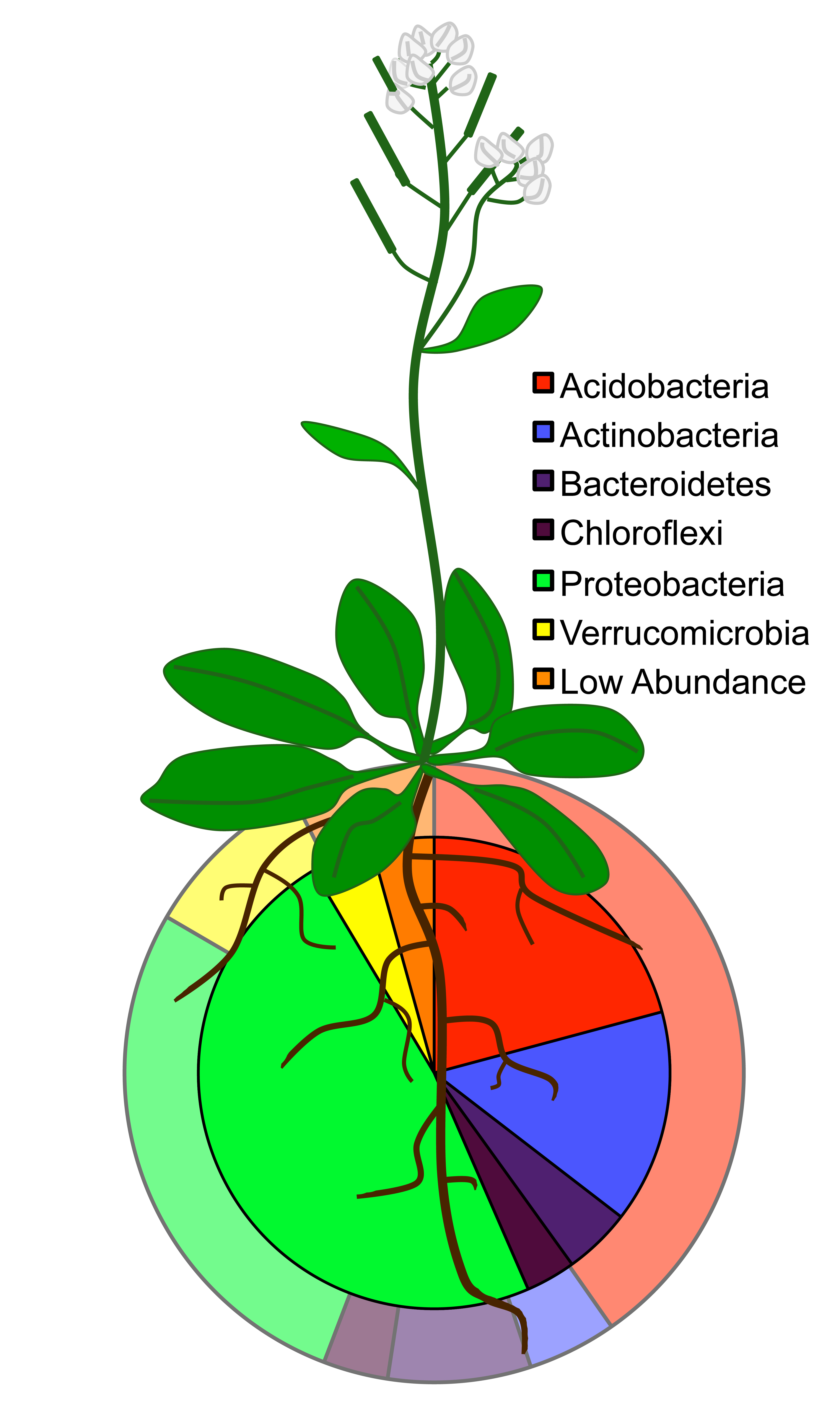Plants roots are surrounded by communities of microbes (i.e. the “rhizosphere microbiome”); these microbes influence plant growth, development, and disease resistance. Using the model plant Arabidopsis and its associated bacteria, such as Pseudomonas fluorescens, our lab studies the genetic and environmental factors that regulate plant-microbiome associations.
Our current projects are focused on:
- Uncovering how microbes, including P. fluorescens, can colonize a host despite the presence of an intact immune system.
- Identifying plant genes that shape microbiome community.
- Identifying bacterial and plant genes that affect the functional outputs of the microbiome.
- Identifying conserved mechanisms across Pseudomonas species that are required for association with diverse hosts.
Plants shape their associated microbes into communities that are distinct from surrounding soil. This figure shows the relative enrichment and depletion of certain bacterial phyla in the Arabidopsis rhizosphere (inner circle) relative to the starting community in bulk soil (outer circle).

